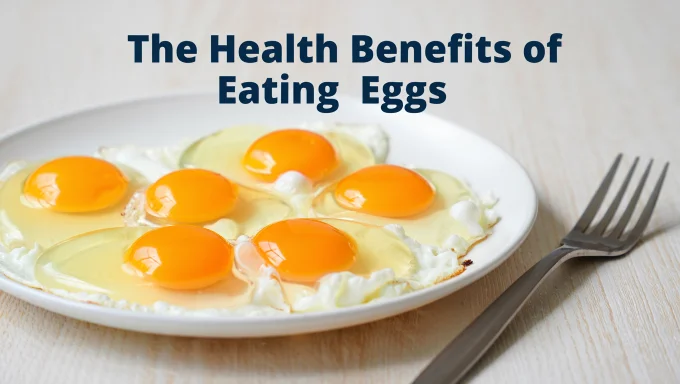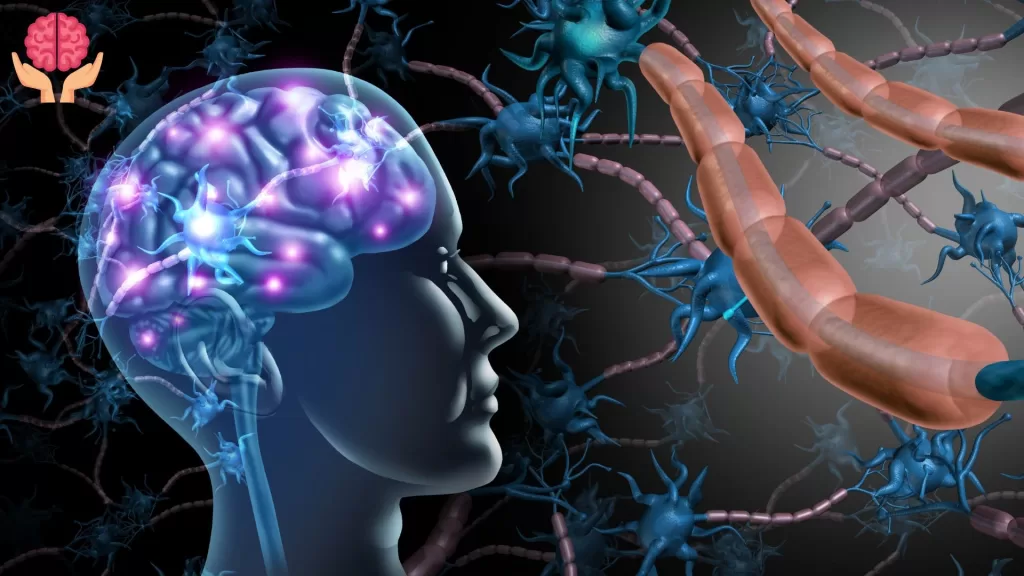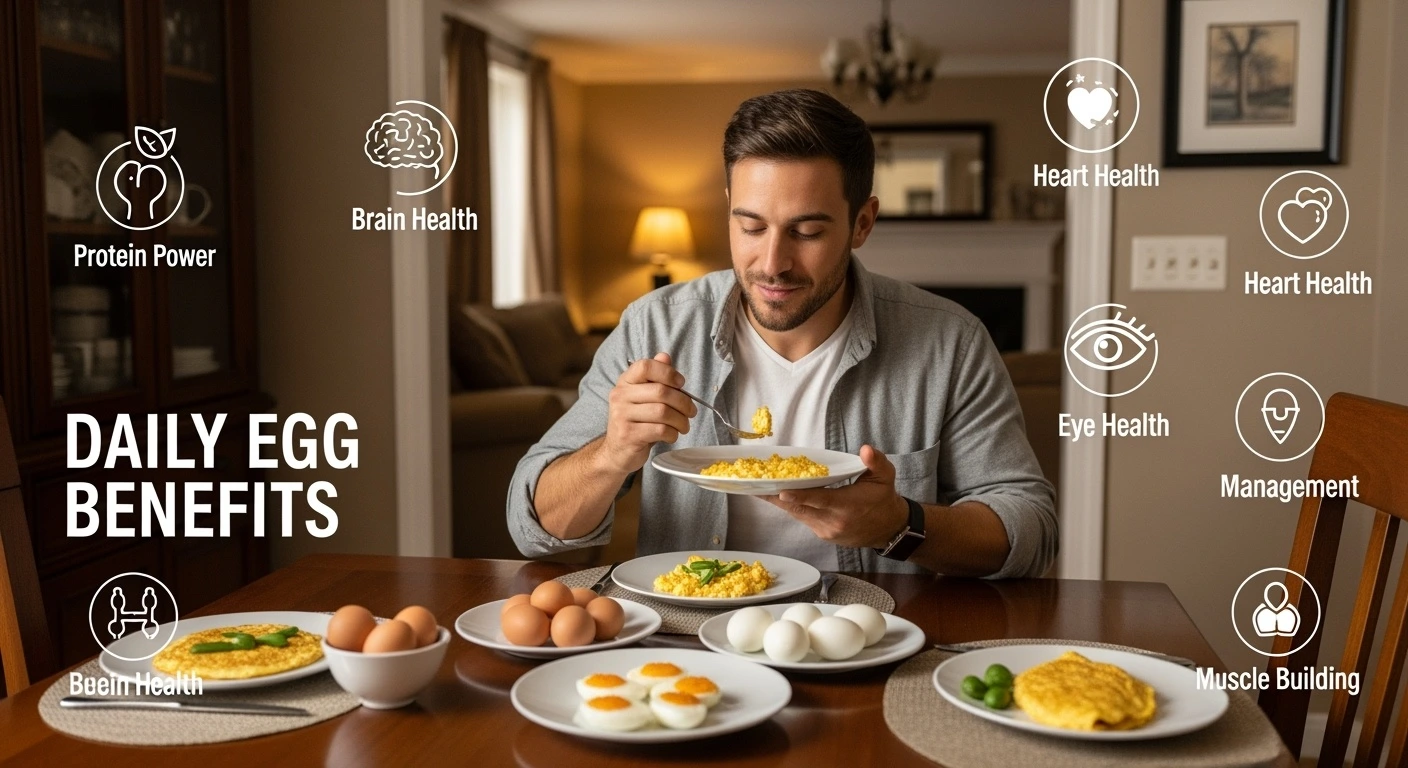The health benefits of eating eggs daily: One easy and effective first step toward improved health is regular egg consumption. Excellent protein found in eggs aids weight control, keeps you full longer, and helps muscles grow and heal. High in vital minerals as well, including vitamin B12, vitamin D, selenium, and choline—all of which are vital for the immune system, brain function, and energy generation.
If you are concerned about cholesterol, most people believe modest egg intake (1–2 daily) to be safe and may help “good” HDL cholesterol levels rise. Plus, eggs are rather flexible and quite cheap; you can boil, scramble, poach, or bake them into many healthful dishes.
Including eggs in your daily diet helps strong muscles, a keen mind, and a consistent energy supply during the day. For a well-rounded meal, just toss them with fresh vegetables or nutritious grains. Daily egg consumption is not only practical but also wise for general health.
I am Dr. Sankha Subhra Basu, General Physician, MBBS, MD (CERT), with over 24 years of experience in Medical Science. As a Healthcare Consultant and nutrition expert, I am writing this article about the Health benefits of eating eggs daily for your wellness. Please read this article to gain a better understanding and enhance your experience.

✅ Key Features: The Health Benefits of Eating Eggs
Rich in essential vitamins, minerals, and high-quality protein, eggs are a nutrient-dense food that supports good health. From strengthening muscles and bones to enhancing cognitive function and eye health, eggs are a simple, economical method to enrich your diet. In this key takeaways guide, we’ll highlight the major health advantages of eating eggs and why they might be a smart addition to your regular meals.
- Excellent Source of High-Quality Protein: Eggs help build and repair muscles, support metabolism, and keep you full longer—perfect for managing weight and boosting energy.
- Packed with Essential Nutrients: You get vital vitamins like B12, D, A, and minerals such as selenium and zinc that support your immune system and brain health.
- Supports Brain Function: Eggs are rich in choline, a nutrient that helps improve memory, mood, and overall cognitive function.
- Promotes Heart Health (in moderation): Despite past concerns, studies show that moderate egg intake can raise good (HDL) cholesterol and support heart wellness in healthy individuals.
- Good for Eye Health: The lutein and zeaxanthin in eggs help protect your eyes from age-related damage and strain.
- Budget-Friendly & Easy to Prepare: Eggs are an affordable, quick, and flexible ingredient for breakfast, lunch, or dinner.
Eating eggs daily is a small habit that can make a big difference in your wellness journey.
An Introduction: Health benefits of eating eggs daily
One of the most reasonably priced and nutrient-dense superfoods you can include every day is eggs. Whether you prefer them boiled, scrambled, poached, or in an omelet, eggs are a tasty and simple way to increase your overall well-being. Just one egg is filled with high-quality protein, healthy fats, and a variety of critical elements, including vitamin B12, vitamin D, selenium, and choline, all of which play a key part in supporting your body’s everyday functioning.
When eaten in moderation, eggs may help maintain and grow muscle, boost cognitive function, and even assist heart and eye health. They’re also believed to keep you full for longer, which may assist with weight control and minimizing harmful eating. Despite beliefs regarding cholesterol, evidence suggests that moderate egg eating is healthy and even helpful for most individuals.
If you’re searching for a natural, nutritious, and fulfilling diet that boosts your energy, attention, and immunity, eggs are a fantastic option. They’re fast to make, highly adaptable, and fit into practically every sort of diet. In summary, eating eggs every day is a sensible and straightforward method to take better care of your health from the inside out.
What are the benefits of eating eggs every day?
Eating eggs every day may give a broad variety of health advantages that help your overall well-being. They are a wonderful source of high-quality protein, which helps build muscle, keep you full, and support weight control. Eggs are also rich in critical nutrients, including vitamin B12, vitamin D, selenium, and choline, which contribute to cognitive function, bone health, and a stronger immune system.

Thanks to antioxidants like lutein and zeaxanthin, eggs also help protect your eyes from age-related diseases. Contrary to conventional ideas, modest daily egg intake is safe for most individuals and may even help improve “good” HDL cholesterol levels.
Because eggs are economical, quick to prepare, and incredibly adaptable, they’re a wise addition to practically any diet. Whether you’re trying to remain energetic, control weight, or just eat better, adding eggs to your regular meals is a simple step toward a healthier you.
Nutritional Value of an Egg
Read the following about the nutritional value of one egg (approx. 50g): You should know before eating an egg daily.
| Nutrient | Amount per Large Egg (50g) | % Daily Value (Approx.) |
|---|---|---|
| Calories | 70 kcal | – |
| Protein | 6.3 g | 13% |
| Total Fat | 5 g | 8% |
| • Saturated Fat | 1.6 g | 8% |
| • Monounsaturated Fat | 2.0 g | – |
| • Polyunsaturated Fat | 0.7 g | – |
| Cholesterol | 186 mg | 62% |
| Carbohydrates | 0.6 g | <1% |
| Sugar | 0.5 g | – |
| Vitamin A | 270 IU | 6% |
| Vitamin B12 | 0.6 mcg | 25% |
| Vitamin D | 41 IU | 10% |
| Choline | 147 mg | 27% |
| Selenium | 15.4 mcg | 22% |
| Iron | 0.9 mg | 5% |
| Calcium | 28 mg | 2% |
| Phosphorus | 99 mg | 8% |
Note: The daily amounts are calculated with a diet of 2,000 calories. Depending on the egg’s size and cooking technique, nutritional values may differ somewhat.
Are Eggs good for health?
Yes, when consumed in moderation, eggs are very beneficial to your health. They’re a nutritious powerhouse, packed with high-quality protein, healthy fats, and key vitamins like B12, D, and A. Eggs also include choline, which promotes brain function, and antioxidants like lutein and zeaxanthin that protect your eyes.
Despite earlier worries about cholesterol, evidence demonstrates that for most healthy individuals, eating 1–2 eggs a day is safe and helpful. Eggs aid with muscle growth, weight control, and immunological support. Affordable and adaptable, eggs are a wonderful option for a balanced diet when cooked in healthful ways like boiling or poaching.
The Ten Health Benefits of Eating Eggs Daily
Eating eggs regularly has amazing health advantages. They’re filled with high-quality protein, important vitamins like B12 and D, and brain-boosting choline. Eggs help muscular development, heart and eye health, weight control, better bones, immunity, and even healthier hair and skin. Their antioxidants protect your eyes, while their minerals promote general well-being. Plus, they’re inexpensive, adaptable, and quick to prepare, making them a sensible option for your daily diet.

1. Superior Protein for Stronger Muscles
Eggs are one of the greatest natural sources of complete protein. Each egg offers you roughly 6 grams of high-quality protein, providing all nine important amino acids. If you’re seeking to grow or retain muscle, boost tissue regeneration, or remain full longer, eggs are a terrific complement to your meals.
2. Enhances Your Mental Well-being
Eggs are rich in choline, a substance your brain requires for memory, mood stability, and cognitive function. Just one egg offers you roughly 147 mg of choline, making it an easy method to keep your mind bright and focused.
3. Supports Heart Health (in Moderation)
Worried about cholesterol? Studies demonstrate that modest egg eating (1–2 per day) might boost your good HDL cholesterol. Eggs also include antioxidants like lutein that assist heart and vascular function.
4. Great for Eye Health
Egg yolks contain lutein and zeaxanthin, strong antioxidants that help protect your eyes from damaging blue light and age-related disorders, including cataracts and macular degeneration.
5. Promotes Healthy Weight Management
Trying to control your weight? Eggs are inherently healthy owing to their protein and healthful fats. Eating eggs, particularly in the morning, helps manage appetite and lessens the need to snack between meals.
6. Fortifies Teeth and Bones
Eggs are a natural source of vitamin D, which improves calcium absorption, vital for keeping healthy bones and teeth. If you don’t get enough sun, eggs are a terrific method to enhance your vitamin D consumption.
7. Improves Hair, Skin & Nails
The protein, biotin, and B vitamins included in eggs play a significant part in keeping healthy hair, beautiful skin, and stronger nails. It’s beauty nourishment in a shell!
8. Facilitates a Healthful Pregnancy
If you’re pregnant, eggs are a fantastic meal to include in your diet. The choline in eggs aids prenatal brain development and minimizes the incidence of birth abnormalities. Just make sure to cook them completely.
9. Helps Build Immunity
Eggs provide key immune-boosting elements, including selenium, zinc, and vitamin A. Including eggs in your regular diet may help your body fight off disease and be resilient year-round.
10. Versatile, Affordable & Easy to Prepare
Beyond nutrients, eggs are very handy. You may boil, scramble, poach, or transform them into many healthful recipes. Plus, they’re economical, making healthy eating accessible on any budget.
Final Tip:
To get the most out of eggs, consume them as part of a balanced diet. Pair them with veggies, complete grains, and healthy fats for a well-rounded, fulfilling dinner.
Daily Egg Intake for Specific Health Concerns: What You Need to Know
One of the foods with the highest nutritional density you can include in your diet is eggs. Protein, vitamins, minerals, and good fats are all abundant in them. However, how many eggs should you consume each day, particularly if you have certain health objectives or concerns? So that you can add eggs to your dish with confidence, let’s break it down in a straightforward manner.
1. If You Have High Cholesterol
You’ve likely heard conflicting information about cholesterol and eggs. Here’s the truth:
- Although cholesterol is present in the yolk, most people’s blood cholesterol levels are not significantly affected by dietary cholesterol.
- It’s advisable to utilize egg whites more often or restrict yourself to one whole egg per day if you have a history of heart disease or inherited high cholesterol.
Read here some tips: To increase protein without increasing cholesterol, you may consume one entire egg per day and add additional egg whites.
2. If You’re Focused on Brain Health
Choline, a substance vital to memory and brain function, is abundant in eggs. About 27% of your daily choline requirements may be met by eating one big egg.
- To support your brain, aim for 1–2 eggs per day.
✅ Bonus: Eggs may be a brain-boosting meal for you and your unborn child if you are pregnant, since choline is particularly vital during pregnancy.
3. If You’re Trying to Build Muscle
All nine of the key amino acids your body need for muscle repair are found in eggs, making them a complete protein source.
- You may safely eat two to three eggs a day as part of a balanced diet if you exercise often.
✅ For the ideal pre- or post-workout breakfast, pair eggs with nutritious grains (such as toast or oats).
4. If You’re Trying to Lose Weight
Because of their high protein content, eggs might help you feel fuller for longer. This implies fewer desires for snacks throughout the day.
- Two eggs for breakfast might help you feel less hungry and consume fewer calories overall.
✅ If you want to lose weight, stick to scrambled, poached, or boiled eggs (with very little oil).
5. If You Have Diabetes or Insulin Resistance
A diabetic-friendly diet may include eggs, particularly when combined with low-glycemic foods.
- While it’s generally safe to consume one or two eggs each day, see your physician if you have any other heart disease risk factors.
✅ To help regulate blood sugar, eat eggs with foods high in fiber, such as spinach or whole-grain bread.
6. If You’re Concerned About Bone Health
Vitamin D, which is found in eggs, aids in the body’s absorption of calcium. About 6% of your daily vitamin D requirements may be met by one big egg.
- Eating one or two eggs per day, combined with other vitamin D sources, is a wise choice, even if one egg won’t fully meet your requirements.
✅ For an even greater bone boost, eat eggs with mushrooms or dairy that has been fortified.
7. For Hair, Skin & Nail Health
Eggs include protein and biotin, which promote healthy skin, hair, and nails.
- To keep your levels of biotin and other nutrients that encourage beauty at healthy levels, you may safely consume one or two eggs per day.
✅ The yolk carries the bulk of the substances, so avoid skipping it!
Quick Daily Egg Guide Based on Health Goals
| Health Concern | Recommended Eggs/Day | Notes |
|---|---|---|
| High Cholesterol | 1 (plus egg whites) | Prioritize egg whites if needed |
| Brain Health | 1–2 | Rich in choline |
| Muscle Gain | 2–3 | Excellent post-workout food |
| Weight Loss | 2 | Helps with fullness and appetite |
| Diabetes | 1–2 | Keep saturated fats low |
| Bone Health | 1–2 | Source of vitamin D |
| Hair/Skin/Nails | 1–2 | Supports biotin and protein intake |
Important Note
Without a doubt, eggs may be a component of your diet. Just keep in mind that cooking methods are also important. For the healthiest alternative, choose eggs that are boiled, poached, or gently scrambled with little to no butter or oil.
Most essential, if you have a particular problem or are not sure how many eggs are appropriate for you, always see your healthcare physician.
The Skin Benefits of Eating Eggs
Eating eggs isn’t only beneficial for your health—it’s also wonderful for your skin. Packed with protein, vitamins, and important elements like biotin and selenium, eggs help enhance skin texture, increase elasticity, and produce a natural shine. Adding eggs to your diet may encourage cleaner, healthier, and more beautiful skin.

Eating eggs frequently may do amazing things for your skin from the inside out. This is how they help you shine naturally:
✅ 1. Boosts Skin Elasticity
Eggs are rich in collagen-boosting elements, including protein, lysine, and proline, which help keep your skin tight and young.
✅ 2. Promotes Natural Glow
Eggs include vitamins A, B2 (riboflavin), and B12, which aid in skin cell renewal and give you a healthier, more radiant complexion.
✅ 3. Supports Skin Hydration
Eggs include healthy fats that help protect your skin’s natural moisture barrier, preventing dryness and flakiness.
✅ 4. Fights Acne & Breakouts
Eggs’ zinc and selenium help maintain hormonal balance and lower inflammation in the skin, which may help manage pimples and acne.
✅ 5. Strengthens Skin Structure
Eggs include vitamin D and biotin, which keep your skin firm, smooth, and protected from the elements.
Including eggs in your daily diet is a simple, natural way to nourish your skin from within, making it look fresher, clearer, and more radiant over time. Just pair them with other skin-loving foods for the best results!
Eggs you can eat per day
The health benefits of eating eggs daily. The quantity of eggs you may consume every day depends on your general health, nutrition, and lifestyle. For most healthy people, eating 1 to 2 eggs daily is considered safe and helpful. Eggs are nutrient-dense, giving high-quality protein, vitamins, and healthy fats.
However, if you have diseases like high cholesterol or heart disease, it’s better to visit your doctor or a dietitian for specialized guidance. Including eggs as part of a balanced diet, with lots of veggies, whole grains, and healthy fats, can enhance overall health. Remember, moderation is crucial, and how you cook them matters too—boiled or poached is healthier.
Eggs: How to Include Eggs in Your Diet?
Including eggs in your diet is easy, healthy, and tasty. Whether you eat eggs for breakfast, in salads, sandwiches, or stir-fries, eggs are versatile and simple to cook. Packed with protein and other minerals, they make a sensible supplement to any meal, supporting your health with every mouthful.
1. Breakfast Staple
Eggs may be cooked, scrambled, poached, or sunny-side up to start the day. For a well-rounded dinner, serve them with avocado, sautéed vegetables, or whole grain bread.
2. Increase the taste can including salads
Add sliced cooked eggs to your salads to add taste, protein, and healthy fats.
3. Wraps & Sandwiches
Add scrambled or fried eggs to pita pockets, sandwiches, or wraps together with lean meats and fresh vegetables.
4. Mix into Stir-Fries or Rice
For added texture and nutrients, add softly scrambled eggs to noodles, stir-fries, or fried rice.
5. Snack Wisely
Store hard-boiled eggs in your refrigerator for a portable, high-protein snack.
6. Bake with Eggs
Whole grain banana bread, protein pancakes, and egg muffins are a few healthy baking recipes that incorporate eggs.
It’s simple, delicious, and supports your daily nutritional objectives to include eggs in your diet. To keep it nutritious, just use culinary techniques like baking, poaching, or boiling!
Eating Eggs Every Day: Side Effects
While eggs are healthful, eating them every day may have certain adverse effects for some people. Though recent studies demonstrate that moderate egg consumption is healthy for most individuals, those with heart disease or excessive cholesterol should check their intake and see a doctor.
Some individuals may develop digestive difficulties, such as bloating or gas, particularly if eggs are fried or prepared with excessive fats. Egg allergies, while more frequent in children, may also develop in adults and may cause skin rashes, nausea, or respiratory issues.
Additionally, consistently eating undercooked or raw eggs provides a tiny risk of salmonella infection, leading to gastrointestinal troubles or food poisoning.
To enjoy the advantages safely, keep to 1–2 eggs per day, boil them completely, and couple them with fiber-rich meals for balance.
Are Eggs a cause of elevated Cholesterol?
There is cholesterol in eggs—roughly 186 mg per large egg, mostly in the yolk. Eating one or two eggs a day, however, does not considerably elevate blood cholesterol or increase the risk of heart disease in the majority of healthy people.
Still, it’s advisable to ask your doctor how many eggs are safe for you if you have diabetes, high LDL cholesterol, or a history of heart problems. More important than any one meal, including eggs, is the quality of your diet as a whole.
Health benefits of eating eggs daily for Brain Health
Eating eggs daily can offer significant benefits for your brain health. One of the greatest natural sources of choline, a vitamin necessary for brain growth and function, is eggs. Choline helps produce acetylcholine, a neurotransmitter involved in memory, mood, and muscle control. Just one large egg provides about 147 mg of choline, which supports cognitive function and may reduce the risk of age-related mental decline.

Eggs also contain vitamin B12, omega-3 fatty acids, and antioxidants like lutein and zeaxanthin, which protect brain cells from damage and support long-term neurological health. Regular consumption of eggs can improve focus, boost mental clarity, and support mood regulation.
Whether you’re studying, working, or aging gracefully, including 1–2 eggs daily in your diet can nourish your brain, keep you sharp, and support overall mental wellness—naturally and deliciously. Just go easy on added fats when cooking to keep it healthy!
The Pros (Advantages) and Cons (Disadvantages) of Eating Eggs
Eating eggs every day may give several health advantages, but like any meal, moderation is crucial. Eggs are full of protein and important elements, but they also contain cholesterol that may not suit everyone. Understanding the advantages and downsides helps you make better, healthier decisions in your everyday diet.
Read the following pros and cons of eating eggs daily for your health, for your better knowledge, and information:
✅ The Cons (Disadvantages) of Eating Eggs Daily
| Benefit | Why It Matters |
|---|---|
| Rich in High-Quality Protein | Helps build muscles, keeps you full, and supports weight management. |
| Packed with Essential Nutrients | Provides vitamins A, B12, D, and minerals like selenium and iron. |
| Supports Brain Health | Contains choline, vital for memory and cognitive function. |
| Boosts Eye Health | Includes lutein and zeaxanthin, antioxidants that protect against eye damage. |
| Heart-Friendly in Moderation | May increase good (HDL) cholesterol when eaten in controlled amounts. |
| Promotes Healthy Skin and Hair | Biotin and protein improve skin texture and hair strength. |
| Budget-Friendly and Versatile | Easy to cook, affordable, and fits into many dishes and diets. |
⚠️ Cons of Eating Eggs Daily
| Drawback | What to Watch Out For |
|---|---|
| Cholesterol Content | One egg contains about 186 mg of cholesterol—those with heart issues should monitor intake. |
| Food Sensitivity – Allergies | Some people may experience egg allergies, especially children. |
| Risk from Undercooked Eggs | Eating raw or undercooked eggs can lead to salmonella in rare cases. |
| Overeating Can Add Calories | Eating eggs with too much butter, cheese, or fried oil can offset health benefits. |
Read here some tips:
Stick to 1–2 eggs per day, utilize healthy cooking techniques (such as boiling or poaching), and combine with other foods like greens for a well-rounded diet.
Video Review: Health Benefits of Eating Eggs Daily
Public Reviews
Read the following some important public reviews about the health benefits of eating eggs daily. It will help you gain better knowledge before eating eggs daily.
⭐️⭐️⭐️⭐️⭐️ – Priya S., 32, Mumbai
“Since I started eating two boiled eggs every morning, I feel like I have a lot more energy! Since I feel fuller for longer, I no longer eat snacks before lunch. I also feel like my skin and hair are healthier. Without a doubt, I now include eggs in my daily routine!”
⭐️⭐️⭐️⭐️ – Rahul M., 41, Delhi
“I started eating eggs every day, generally boiled or poached, after talking to my doctor about my cholesterol problems. I had decreased HDL cholesterol. I like how simple it is to make eggs and how they provide me with energy on hectic mornings.”
⭐️⭐️⭐️⭐️⭐️ – Aarti R., 27, Bengaluru
“Since adding eggs to my diet six months ago, I’ve seen a decrease in my cravings for sweets and an improvement in my concentration at work. My skin is finally glowing and brighter. What more could I want than something delicious, healthy, and reasonably priced”?
⭐️⭐️⭐️⭐️ – Karan J., 36, Pune
“Eggs helped me in my weight loss journey. ” I don’t feel hungry all the time like I used to, since they’re so full. I like scrambled eggs with veggies for breakfast. Highly recommended!”
Conclusion: Why Eggs Deserve a Spot in Your Daily Diet?
The health benefits of eating eggs daily. Eggs are a great option if you’re searching for a quick, inexpensive, and wholesome meal to help you stay healthy. Rich in key vitamins B12, D, and A, as well as vital nutrients like choline, selenium, and antioxidants, eggs are a great way to fuel your body and mind. They promote the health of your skin and eyes, increase your energy levels, support cognitive function, and even help you control your weight by keeping you feeling fuller for longer.
Eggs may contain cholesterol, but for the majority of healthy individuals, eating one or two eggs a day is not only harmless but also advantageous. How you prepare them is crucial. For optimal results, choose scrambled, poached, or cooked with little oil. Additionally, to have a well-balanced breakfast, combine your eggs with good grains or vegetables that are high in fiber.
Ultimately, eggs are a nutrient-dense superfood that can be included in almost any diet, making them more than simply a morning staple. Therefore, break an egg and take pleasure in the health benefits it offers, one mouthful at a time.
🥚 Frequently Asked Questions (FAQs) About Eating Eggs Daily
Read here the most important frequently asked questions about the health benefits of eating eggs daily.
2. Are eggs a cause of elevated cholesterol?
Although eggs do contain dietary cholesterol, they typically have little effect on blood cholesterol levels. They may increase heart-healthy HDL (good) cholesterol. See your physician if you have high LDL or heart problems.
3. Are eggs good for weight loss?
Of course! Because they are so filling and abundant in protein, eggs might help you feel fuller for extended periods. They are a wise option for controlling weight loss, particularly if consumed first thing in the morning.
4. Are raw eggs safe to eat?
Salmonella bacteria may cause food poisoning, therefore it’s better to stay away from raw or undercooked eggs. To be safe, always cook eggs all the way through.
5. Can I eat eggs if I’m diabetic?
It is possible to include eggs in a diabetic-friendly diet. They don’t raise blood sugar levels and are low in carbohydrates. To keep meals heart-healthy, just balance them with nutritious grains and veggies.
6. Are egg whites healthier than whole eggs?
Egg whites are a smart choice if you’re controlling your cholesterol since they’re lower in calories and cholesterol. However, don’t miss the yolk for no reason since it contains vital nutrients, including choline, vitamin D, and healthy fats.
7. What’s the best time to eat eggs?
It’s best in the morning. Eating eggs for breakfast provides you a powerful protein boost to start the day, helps you manage cravings, and keeps you fuller for longer.
Disclaimer: This article is not meant to replace expert medical advice, diagnosis, or treatment; it is rather meant to be informative. If you have any queries about a medical issue, you should always see your doctor or another trained healthcare professional.
Author’s Remarks:
As a certified healthcare expert and consultant. With a passion for promoting wellness, I provide accurate, practical insights. This article offers valuable information to support your health journey and empower better lifestyle choices.
You can visit our site daily to get the latest information about health, fitness, your daily healthy foods, Nutrition facts, healthcare, and wellness Insights. For more information, please visit our website, The 9nn Times.
